Nebraska gets chilly in the wintertime—but that’s what your furnace is for! The challenge for many Lincoln homeowners is to recognize common furnace problems and fix them before they have a chance to become serious inconveniences or costly emergencies.
That’s where Star City’s expert home comfort team comes in. We’ve performed furnace repairs throughout Lincoln, NE and the surrounding areas, so we know all about the things that are most likely to go wrong with your heating system and the best ways to address them. Read on to spot the signs of an impending furnace failure and know when to tackle them yourself or call our professionals for help.
What Are the Most Common Furnace Problems in Nebraska?
Homeowners in Nebraska encounter a few common issues with their furnaces—including frequent cycling, ignition problems, and poor air quality. These issues can result from typical wear and tear, but they’re often exacerbated by the harsh Nebraska winters, which can cause furnaces to work extra hard during the year’s coldest months.
Frequent Cycling
Cycling between “On” and “Off” more often than usual can be a clear sign that your furnace isn’t functioning properly. Causes might include:
- A clogged filter
- Improper air circulation caused by a blocked or leaky duct
- A faulty thermostat
Can You Fix It Yourself?
If the issue is your air filter, it’s an easy fix—just clean the filter (if it’s reusable) or swap it out (if it’s disposable). However, if the issue is due to a faulty thermostat, it’s best to hire a professional. While you can change the batteries and adjust the settings yourself, calibrating a thermostat can be a complex process that’s best performed by pros.
The same goes for leaking or blocked ducts. While you can probably remove debris from your vents without too much trouble, accessing the interior of your ductwork is difficult (and can void your warranty if not done properly). Call us for duct cleaning and enjoy peace of mind knowing our team is on the job.
Ignition Problems
If your furnace fails to kick on (or starts and then shuts off abruptly), a faulty igniter could be the culprit. This is often caused by normal use over long periods of time, but a sudden power surge can also damage the igniter. In older furnaces with pilot lights, you might also notice the flame burning yellow or orange instead of blue—this could indicate a problem with your air intake valve.
Can You Fix It Yourself?
Nope; this requires professional furnace repairs. Igniters and intake valves are delicate components that require careful installation. Tampering with your igniter can not only void your furnace’s warranty, but can also create an electrical or fire hazard depending on the type of furnace you have.
Poor Air Quality
If the furnace seems to be running but your air smells strange, the air filter may be clogged. You might also notice that your house doesn’t seem to be getting warm fast enough for the amount of work the furnace is doing.
That’s because dust, debris, and allergens can build up on the filter over time, impeding airflow and making the furnace work harder. Ignoring this can accelerate wear and tear on your furnace’s components and drive up your utility bills each month.
Can You Fix It Yourself?
Fortunately, replacing or cleaning a furnace filter is easy! All you need to do is rinse your filter with cold water if it’s reusable or replace it with a new one if it’s not.
Furnace Safety Precautions for Nebraska Homeowners
Safety is paramount when dealing with furnaces. Here are some steps you can take to prevent carbon monoxide poisoning and gas leaks.
- Install carbon monoxide detectors near every sleeping area in your home and check the batteries twice a year.
- Schedule regular professional furnace maintenance and inspections. Our team knows how to spot the signs of a carbon monoxide or gas leak and keep you safe.
- Ensure your furnace has adequate ventilation. A properly vented furnace reduces the risk of carbon monoxide buildup.
DIY Furnace Maintenance Tasks
Maintenance keeps your furnace functioning efficiently over the course of its lifespan and reduces the likelihood of high heating bills or emergency breakdowns. Here are a few things you can do by yourself to keep your furnace in good working condition:
- Change or clean your filter each month during the heating season.
- Keep the area around the furnace clean and unobstructed to ensure proper air circulation.
- Check the thermostat batteries and make sure it’s functioning correctly. This can be done by comparing the temperature it shows to the results of a separate room thermometer.
Professional Maintenance Tasks
Not all furnace maintenance is safe or practical for you to perform on your own. Here are a few tasks that should only be performed by a professional due to their complexity and associated risks:
- Checking for leaks in ductwork
- Inspecting the heat exchanger for cracks
- Working with the blower motor
- Adjusting electrical wiring
- Anything to do with your furnace’s igniter, fuel source, or air intake valves
For best results, schedule professional furnace maintenance at least once each year before you start using your heating equipment during the cooling season.
Additional Resources
The more you learn about your furnace, the easier it is to recognize common problems and get the help you need fast. You can also learn about incentives to purchase new heating equipment so you can enjoy better home heating throughout each winter. Try the following:
- The U.S. Department of Energy offers an energy efficiency guide for furnaces.
- The Energy Star program offers various tax credits for new oil and natural gas furnaces.
- Check out our blog for handy furnace maintenance tips, buyer’s guides, and more.
And remember, help from experienced furnace professionals is only a call away! When you need help with your furnace for any reason, contact Star City Heating & Cooling. We’ll be happy to inspect your furnace, repair any broken or damaged parts, and provide you with new heating equipment if you’re replacing or upgrading your current model.

Furnace Maintenance Tips For Nebraska Winters
As the chill of the winter months set in across Nebraska, ensuring your furnace is in top condition becomes more important than ever. Neglecting furnace maintenance not only risks a mid-winter breakdown, but can also lead to higher energy bills and safety hazards.
In this blog, our team at Star City Heating & Cooling guides you through the maintenance process. We’ve provided routine furnace maintenance to Lincoln and the surrounding communities for years, and we know all about how to make your heating equipment ready for the challenges winter brings. Let’s get started!

Maintaining Your Furnace Yourself
Regular Filter Replacement
Furnace filters are your first line of defense against dust, debris and other contaminants. It’s recommended to check your filter monthly and replace it every 90 days, or more frequently if you have pets or live in a more dusty environment due to renovations or outdoor construction.
A clean filter improves air quality and efficiency, making your furnace work less to heat your home. Not sure what size or type of filter you need? Give our friendly team a call today, we’re well versed in all things filter and can easily identify and install your new furnace filter.
Thermostat Management
Checking your thermostat is one of the best ways to ensure your furnace runs in top shape over the coming months. If it’s battery operated, make sure they’ve been changed or are charged up before the heating season starts.
Also try adjusting the temperature a couple times a day to make sure everything is connected and operating as it should.
Remember, it’s also a good idea generally to lower the temperature when you’re not home to reduce the strain on your furnace. Even just lowering your thermostat by a few degrees while you sleep can make a significant difference.
Ensure Your Vents Are Cleared
Making sure you have proper airflow throughout your home is key to an efficient heating system.
Ensure any and all obstructions have been removed from your vents, like furniture or rugs, and then use a vacuum with a brush attachment to gently remove dust from the inside and outside of your registers.
Insulate Your Home
Proper insulation is key to furnace efficiency. Check for drafts around windows and doors, and seal any gaps with weatherstripping or caulk. Insulating your attic and walls also helps retain heat, reducing the workload on your furnace. If you suspect insulation issues throughout your home, our team can quickly provide solutions.
Keep the Area Around Your Furnace Clean
Ensure the area around your furnace is clear of storage items, especially flammable materials. This not only reduces fire risk but also improves ventilation and accessibility for maintenance or repairs.
Pay Attention to Unusual Noises or Smells
If you notice strange noises like banging, whistling, or grinding from your furnace, or unusual smells, contact Star City right away. These could be signs of serious issues needing immediate attention.

Annual Professional Inspection From Star City Heating & Cooling
While we do believe the above tips to be helpful from a DIY perspective, the absolute best way to maintain your furnace during our harsh Nebraska winters is by scheduling your annual furnace tune-up with the experienced technicians at Star City.
Your technician will identify issues like wear and tear, electrical problems, or a malfunctioning thermostat. Early detection can prevent costly repairs or replacements, and ensure your furnace runs efficiently throughout winter.
Here’s what you can expect from our industry-leading furnace tune-up service.
- Inspect the Heat Exchanger – Check for any signs of corrosion, cracks, or damage.
- Check the Burners – Ensure they are igniting properly and burning cleanly.
- Examine the Blower Motor – Verify that it’s running efficiently and check its amp draw against the manufacturer’s specifications.
- Test the Ignition System – Make sure it’s working reliably and safely.
- Inspect the Flue Pipe – Look for any blockages, leaks, or signs of corrosion.
- Check the Safety Controls – Ensure all safety mechanisms are in place and functioning properly.
- Inspect the Electrical Connections – Tighten any loose connections and measure the voltage and current on the motor.
We will also thoroughly inspect your ductwork to make sure there is no contaminant build up that could hinder the effectiveness and efficiency of your furnace. Our technicians will:
- Check for any signs of damage, leaks, or blockages.
- Use specialized tools to thoroughly clean the ducts.
- Seal any leaks if they are found to improve efficiency.
Benefits of Furnace Maintenance
Regular maintenance of your furnace not only ensures a warm and cozy Nebraska winter but also saves money and keeps your family safe. You’ll benefit from:
- Lower heating bills
- Longer furnace lifespan
- Improved air quality
- More consistent heating
- Less frequent repairs

Become a Star City Member!
To help make furnace maintenance as stress-free as possible, we’re proud to offer our exclusive Healthy Homes Maintenance Plan. For one low monthly cost you’ll get:
- Guaranteed priority service.
- Customize your plan with your choice of safety inspections.
- Service history record and review.
- No warranty processing fee.
- Exclusive members only specials on routine maintenance, repair and installation services.
With the Healthy Homes Maintenance Plan from Star City, you can rest easy knowing we’ve got your annual furnace maintenance under control.
Don’t wait for the deep freeze to settle in; take proactive steps today to guarantee a well-functioning furnace all winter long! Call Star City for your furnace maintenance service today!
The cold Nebraska winters can be tough on you and your household, so keeping your heating equipment functional is essential. Your heat pump can provide reliable warmth throughout the coldest months of the year, but you’ll need to follow a few steps to make sure it works properly.
Our team at Star City Heating & Cooling can help. We’ve provided heat pump installations in Lincoln, NE and the surrounding communities for years, so we’re here to show you everything you’ll need to do to keep yours in great shape no matter how cold it gets outside.
See Also: The 2023 Nebraska Heat Pump Buyer’s Guide
DIY Heat Pump Prep
Some of the things your heat pump needs before winter are easy enough to do on your own without specialized tools or knowledge. Here’s a list:
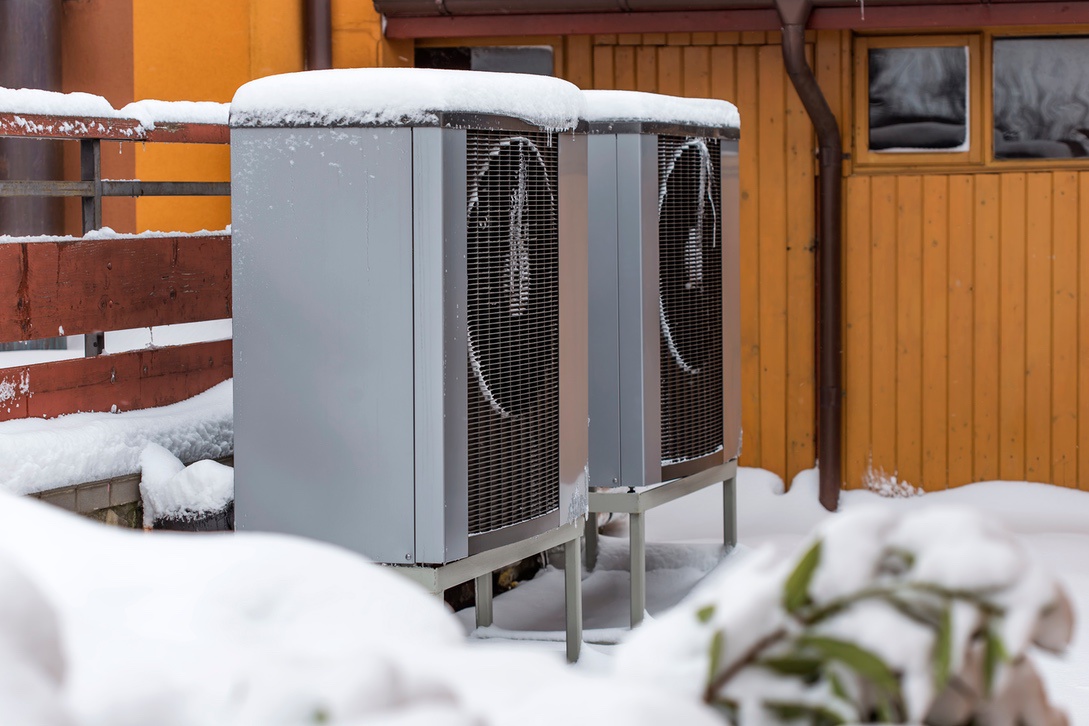
Prepping Your Outdoor Unit
Your heat pump’s outdoor unit plays a critical role in transferring heat into your home. Take these steps to winterize it:
- Clear Debris: Remove leaves, twigs, and other debris from around the outdoor unit—at least two or three feet away. This prevents blockages and maintains airflow efficiency.
- Inspect for Damage: Look for any signs of wear or damage to the unit. Check for rust, loose connections, or damaged pipes.
- Check for Ice or Snow Build-Up: In snowy regions, regularly check the outdoor unit for ice or snow accumulation and gently clear it off.
- Test the Defrost Mode: Ensure the heat pump’s defrost mode is functioning correctly to prevent the buildup of ice during operation.
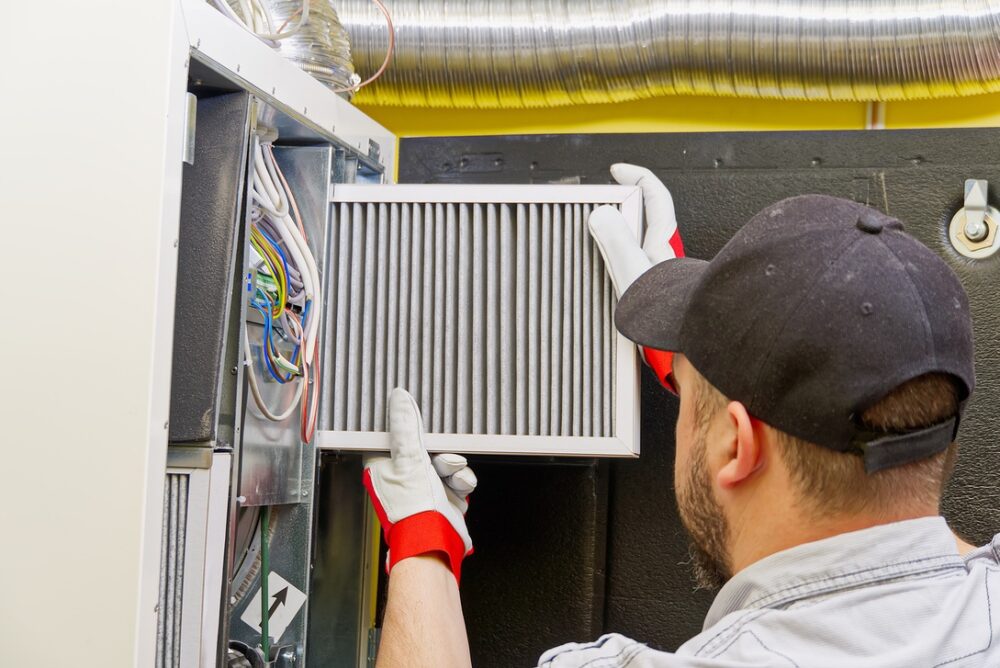
Cleaning or Changing Your Filter
Air source heat pumps have easily replaceable filters, just like forced air furnaces. You’ll want to change the filter in yours at least once every three months during the heating season (and as often as once each month for best results). Here’s how:
- Locate Your Furnace Filter: The filter is usually found inside the indoor unit or the return air vent.
- Check the Filter Type: Determine whether you have a reusable or disposable filter. Reusable filters can be cleaned, while disposable filters must be replaced.
- Inspect and Clean/Replace the Filter: If you have a reusable filter, use a vacuum to remove dust, then rinse it with water. Let it dry completely before putting it back in. If you have a disposable filter, simply replace it with a new one.
- Check the Filter Size: Always use the correct filter size for your heat pump. The required size is usually printed on the side of the filter.
- Install the Filter Correctly: Make sure the filter is installed in the right direction. There should be an arrow on the filter indicating the way the air should move through the filter.
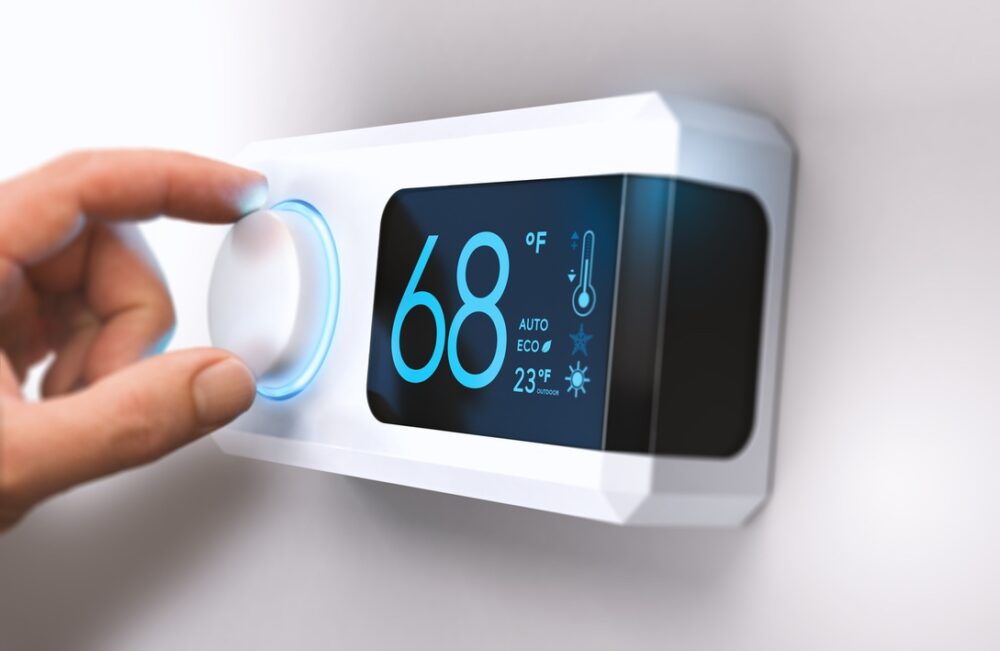
Setting Your Thermostat
Your heat pump is controlled by your thermostat, so take these steps to make sure it’s working properly:
- Check the Batteries: Do this before the heating season (if you have a battery-powered thermostat).
- Use ‘Heat’ Mode: Many thermostats have different modes. Set yours to ‘Heat.’
- Set the Temperature: 68°F (20°C) is a typical daytime setting for most thermostats when people are home. Consider lowering the temperature when away or at night to save energy.
- Consider a Smart Thermostat: Smart thermostats automatically adjust your heat pump to raise or lower the temperature in your home as needed. They can also learn and adapt to your routines, saving energy (and money) over time.
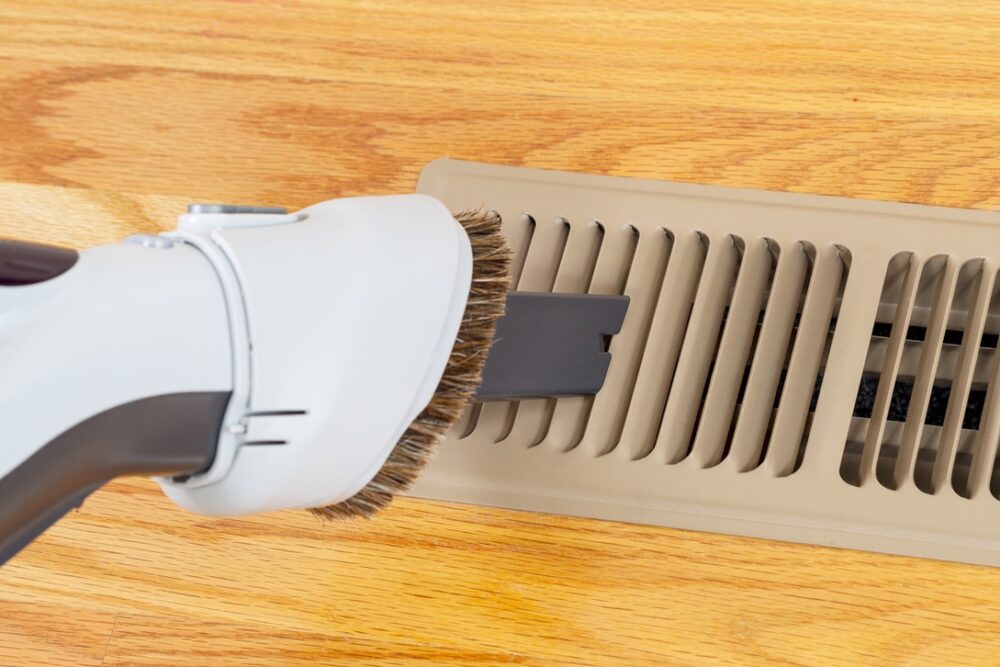
Clearing Your Vents & Registers
Duct cleaning is a professional job, but you can take a few steps to make sure air treated by your heat pump passes through your vents effectively:
- Visually Check Vents: Look at your vents and registers to make sure they’re not dirty or blocked by objects (like furniture or rugs).
- Dust and Clean: Remove any dust or debris you find with a vacuum cleaner.
See Also: The Homeowner’s Guide to Duct Cleaning: Why It Can’t Be Ignored
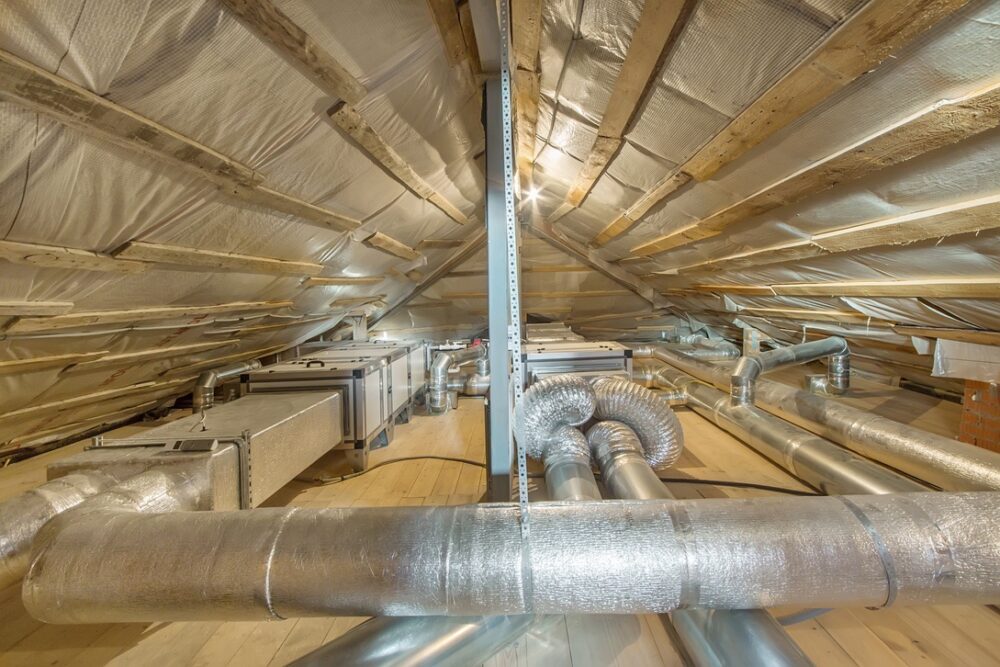
Checking Your Insulation
Your home’s insulation ensures that air treated by your heat pump won’t escape to the outdoors. Here are a few easy things you can do to assess it:
- Seal Windows and Doors: Use weather stripping or caulk to seal any drafts around windows and doors.
- Use Heavy Curtains or Thermal Blinds: These can help keep heat in and cold out.
- Check Attic and Basement Insulation: Look for any obvious gaps that could allow heat to escape from the home in cold weather.
- Look at Your Ductwork: Check visible portions to make sure there are no poorly-insulated sections in unheated areas of the home.
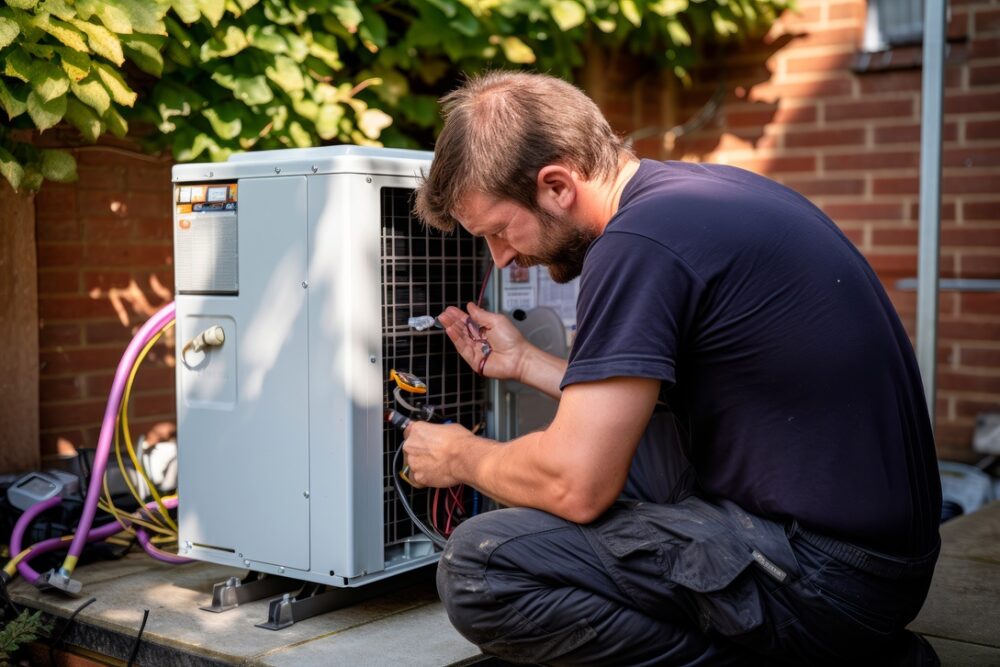
Winter Heat Pump Preparation Tasks for Professionals Only
Some heat pump maintenance should only be carried out by our Star City professionals. Here are a few of the pre-winter tasks we’ll carry out for your heat pump when you have us perform an annual heating tune-up:
Outdoor Unit Tasks
Our team can work with the sensitive components in your outdoor unit to ensure that it performs properly when winter starts. We’ll:
- Straighten the Fins: Carefully straighten any bent fins on the coil. Bent fins can impede airflow and reduce efficiency.
- Ensure Proper Drainage: Check that the area around the heat pump is well-drained. Puddles of water can freeze and cause damage.
- Inspect the Insulation on Refrigerant Lines: Make sure the insulation on the refrigerant lines running to and from the outdoor unit is intact and in good condition.
Indoor Heat Pump Tasks
The indoor unit of your heat pump also contains numerous parts that require an experienced hand. Our team can:
- Check the Safety Controls: Make sure all safety features are functioning properly.
- Inspect the Electrical Connections: Identify and secure loose connections to lower the risk of shocks or fires.
- Inspecting & Cleaning Ductwork: Similar to furnaces, ductwork in all homes with heat pumps should be checked and cleaned for efficiency. Learn more about duct cleaning for Nebraska homes.
- Calibrating the Thermostat: Ensure accuracy and proper placement away from heat sources.
- Lubricating Moving Parts: Use appropriate types and amounts of lubricant for each moving part in your heat pump to reduce wear and tear over time.
Find Your Heat Pump Maintenance Partners in Nebraska
Use the steps above to make your heat pump ready for Nebraska’s harsh winter conditions, and remember to contact Star City for the tasks that need expert assistance. With our help, you’ll be able to depend on your heat pump for versatile climate control throughout the year’s coldest weather—then enjoy reliable cooling once spring and summer arrive.
Nebraska’s cold winters and hot summers make climate control a priority for homeowners—and heat pumps can offer an energy efficient solution. In this article, our home comfort experts at Star City outline the pros and cons of using heat pumps, and give you a deep dive into all the information you need to make an informed decision for your home.
Next Steps:
Table of Contents
- What is a Heat Pump?
- Air-Source vs. Ground Source Heat Pumps
- Environmental Benefits
- Advantages for Heating & Cooling
- Comparison Chart: Heat Pumps vs. Traditional Furnaces
- Upfront Costs & Long-Term Savings
- Maintenance Requirements
- Health Benefits
- Choosing the Right Heat Pump for Your Home
- Considerations for Heat Pump Owners
- Homeowner Resources
- FAQ
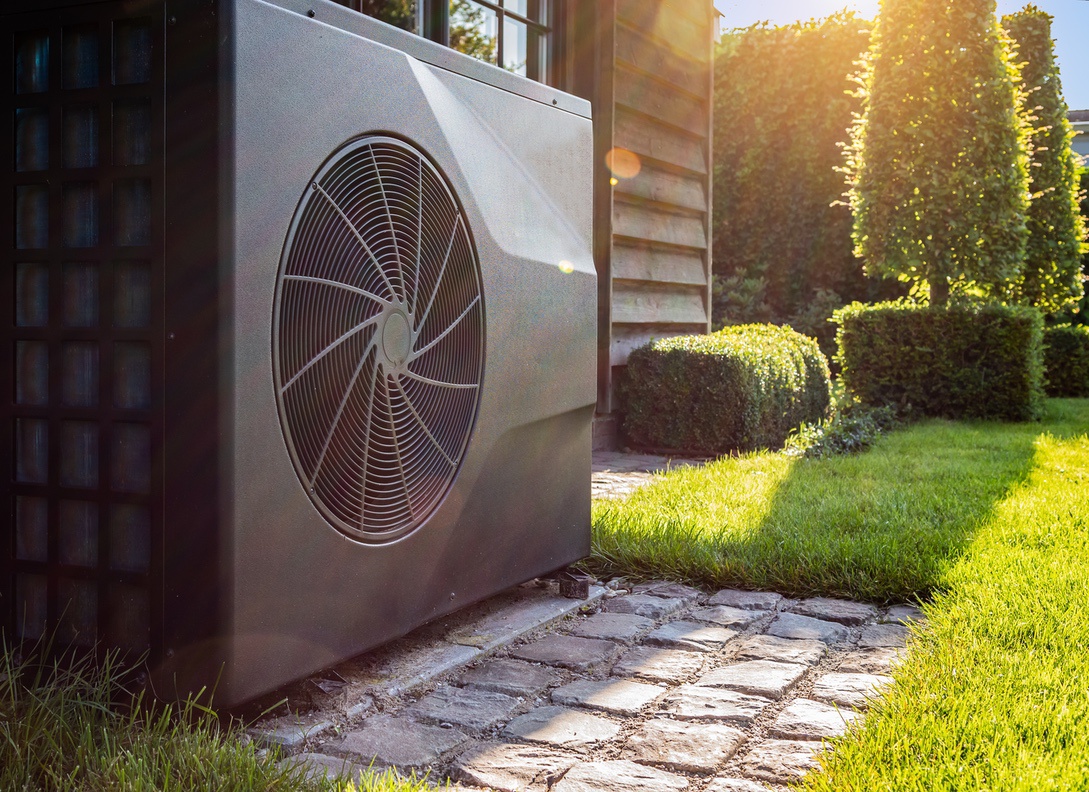
What is a Heat Pump?
A heat pump is an HVAC system that efficiently provides both heating and cooling for homes. Most residential heat pumps use electricity to transfer heat from one location to another.
A heat pump absorbs heat from the air or ground outside and transfers it into the home to provide warmth in cold conditions. In warmer weather, the process is reversed, and the heat pump removes heat from the home to provide cooling.
Air-Source vs. Ground-Source Heat Pumps
Most heat pumps transfer heat from either the air outside your home or the ground underneath. Here’s a quick overview of the pros and cons of each type.
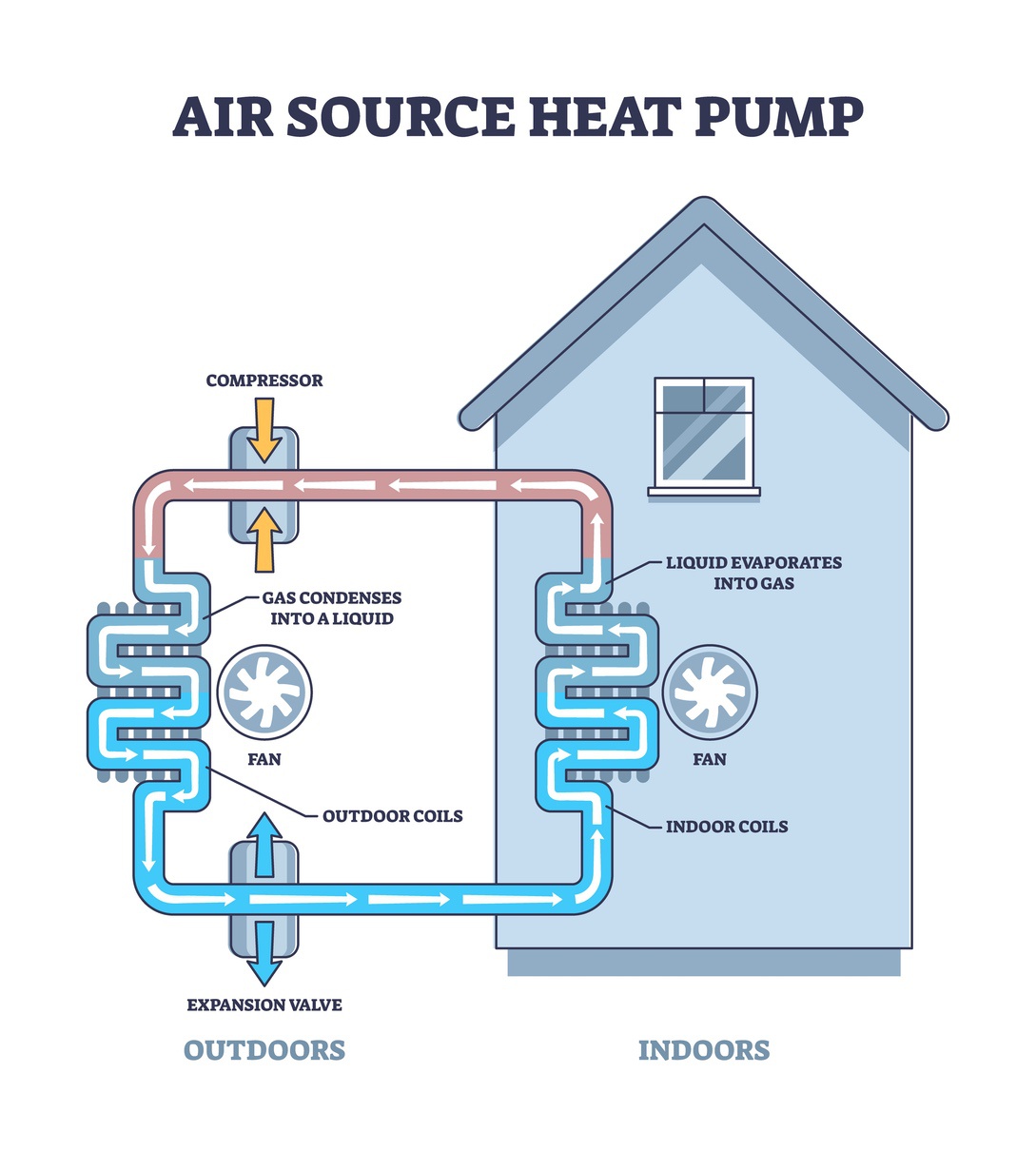
Air-Source Heat Pumps
These pumps transfer heat between the inside of a building and the outside air, absorbing heat from the outside air to heat the building in winter and reversing the process to cool the building in summer.
Pros:
- Cost-Effective Installation: Generally cheaper and easier to install compared to ground-source pumps.
- Energy Efficiency: Offer significant energy savings over traditional heating methods like furnaces and electric heaters.
- Versatility: Can provide both heating and cooling, making them suitable for a variety of climates.
Cons:
- Lower Efficiency in Extreme Temperatures: Their efficiency can decrease in extremely cold climates, as they rely on outside air.
- Noise: Tend to be noisier than ground-source pumps.
- Space Requirements: Require external space for the heat exchanger unit.
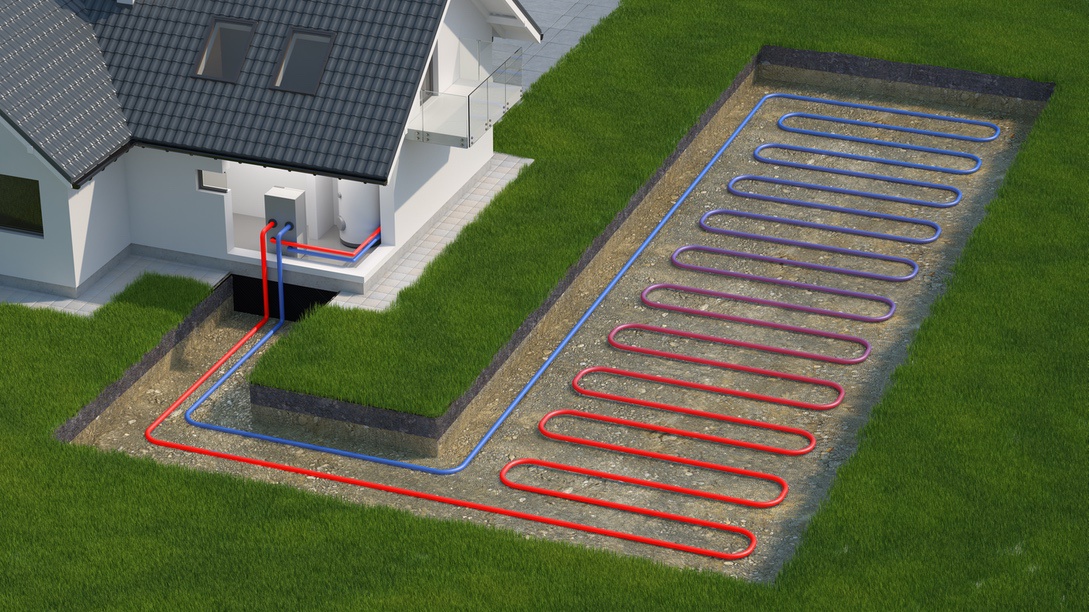
Ground-Source Heat Pumps
Also known as geothermal heat pumps, these models exchange heat with the ground instead of the air outside the home.
Pros:
- High Efficiency: More efficient than air-source pumps, especially in extreme temperatures, due to stable ground temperatures.
- Longevity and Reliability: Typically have a longer lifespan and require less maintenance than air-source pumps.
- Less Space on Ground Level: All major components are buried, saving space above ground.
Cons:
- Higher Initial Cost: Installation is typically more expensive due to the need for ground excavation or drilling.
- Site Requirements: Installation is dependent on having sufficient land and appropriate soil conditions.
- Longer Installation Time: The installation process is more complex and time-consuming.
Environmental Benefits
Using a heat pump offers several environmental benefits and can significantly reduce your carbon footprint. Here’s how:
- Energy Efficiency: Heat pumps are highly energy-efficient and their use leads to lower energy usage overall.
- Reduced Greenhouse Gas Emissions: Rather than burning fossil fuels, heat pumps transfer existing heat to warm homes, resulting in lower gas emissions.
- Versatility and Dual Functionality: Heat pumps can heat and cool your home—which streamlines energy use by eliminating the need for separate cooling and heating systems.
- Incentives and Rebates: In Nebraska, you’re able to qualify for the federal tax credit that will cover up to 30% or $2,000 of the heat pump cost and installation.
Advantages for Heating and Cooling
A heat pump offers dual benefits for both heating and cooling, making it a versatile solution for year-round comfort in Nebraska’s climate. Here are some more advantages that using a heat pump can offer:
- Versatility: Nebraska can see both severe winters and summers. Heat pumps can utilize this climate to its advantage by extracting warmth in the winter and expelling it in the summer.
- Cost Savings: Potential for lower operational costs compared to traditional heating and cooling systems.
- Consistent Comfort: Maintains a consistent, comfortable indoor temperature all throughout the year.
- Health Benefits: Improvement of indoor air quality will occur from a heat pump’s continuous circulation and filtering of air.
Comparison Chart: Heat Pumps vs. Traditional Furnaces
Here’s how heat pumps compare to traditional central furnaces. We’ll go into more detail below, but this chart provides an overview:
| Upfront Costs | Installation Requirements | Long-Term Savings | Maintenance & Life-Span | Climate Considerations | |
| Heat Pump | Higher Initial Costs than traditional HVAC.
Apprx: $5,500 to $10,000. |
Land/Soil Considerations for Ground-Source options. | Potential energy savings over time and potential incentives/rebates offered. | Typically lower maintenance; longer life span. | Best in moderate climates. |
| Full Furnace | Similar Initial Costs to Heat Pump (still need a traditional AC unit if you want cooling).
Apprx: $4,500 to $9,000. |
Straightforward: Gas line or electrical connection needed. | Influenced by fuel costs and trends. | Moderate to high maintenance required; life-span affected by fuel type. | Suitable for various climates, particularly in colder areas. |
Upfront Costs & Long-Term Savings
Upfront Costs
With Star City, heat pump installation starts at just $99 per month. There are also plenty of financial incentives for buying energy-efficient heat pumps, including tax breaks and rebates. Our team can tell you more about how to qualify for these, and provide you with an accurate quote based on your specific needs.
Long-Term Savings
Using a heat pump can lower your utility bills and provide long term savings. And, if something happens to your heat pump within the first year after our installation, we repair it for free!
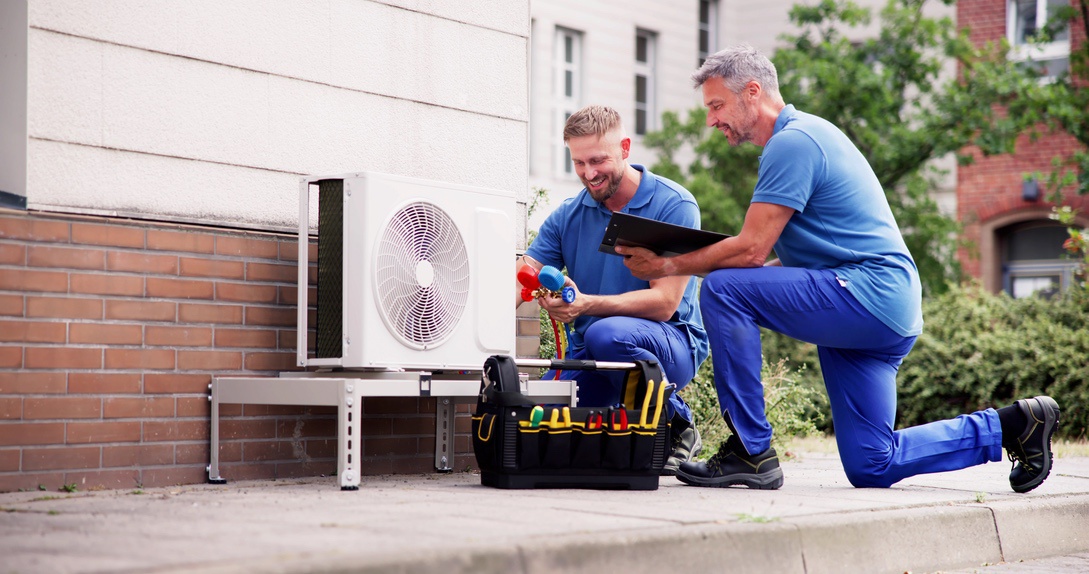
Maintenance Requirements
Regular maintenance is required to ensure long-life of every heat pump and keep its efficiency as high as possible. Book an annual heating tune-up with Star City to point out areas of concern and prevent breakdowns or larger issues from occurring (we do this for heat pumps as well as central furnaces).
Being proactive with proper maintenance will serve you in the long run by saving on repair costs and enhancing your heat pump’s reliability. For a list of maintenance tasks you can do yourself, see the FAQ at the end of this article.
Health Benefits
Modern heat pumps come with filters that capture dust, allergens, and pollutants, which enhances your indoor air quality. This can contribute to immediate health benefits such as reduced respiratory issues and fewer allergy or asthma symptoms.
Choosing the Right Heat Pump for Your Home
Several factors should be considered when choosing a heat pump for your home, including:
- Size and layout of the home: The square footage of your home, the number of floors, ceiling height, occupancy levels, and other factors all determine how much heating and cooling capacity you’ll need. Our team will calculate this before recommending a model for your home.
- Geo-thermal considerations: Consider factors such as soil conditions and rock when deciding between an air-source or ground-source heat pump. For example, according to the Department of Energy, soil with good heat transfer properties requires less piping to gather a certain amount of heat than soil with poor heat transfer properties.
- Local building codes: Star City will ensure compliance with Nebraska building codes to meet safety and installation requirements. This includes its foundation being at least three inches above ground when installed.
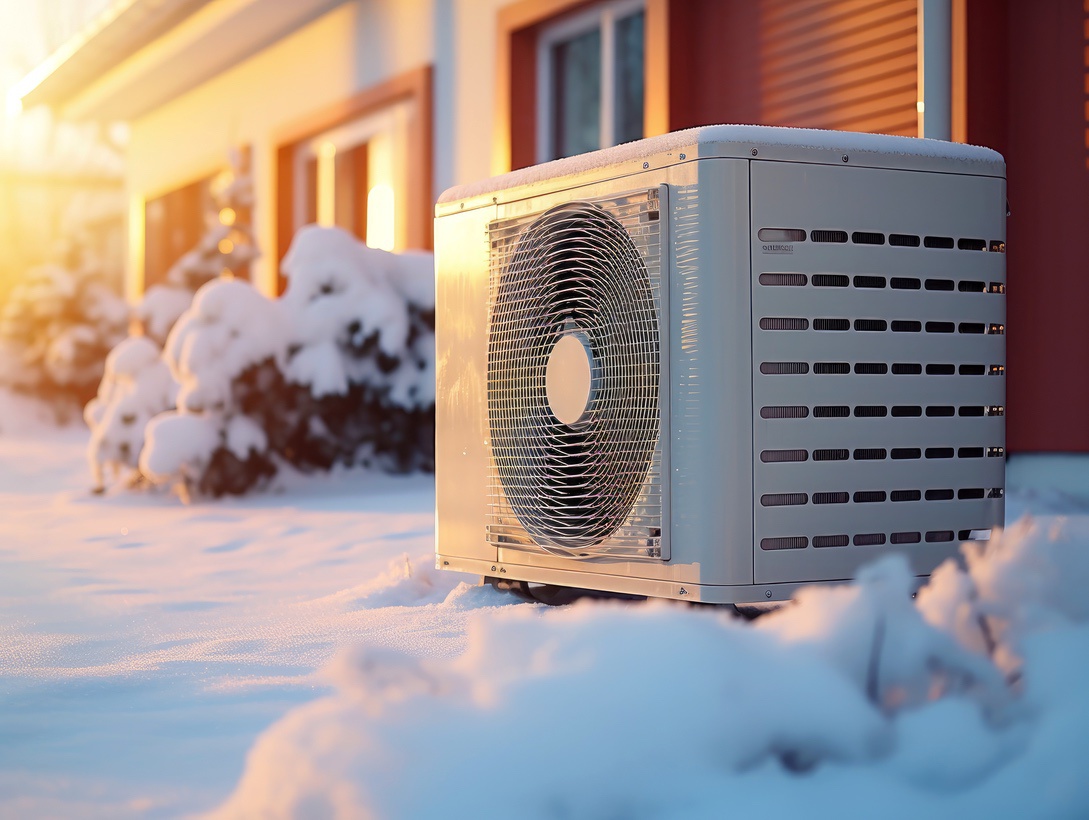
Considerations for Heat Pump Owners
Although there are plenty of advantages to installing a heat pump, it’s important to note the potential challenges in order to make the right decision for your home. These include:
- Initial cost: Heat pumps tend to have higher upfront costs than traditional furnaces or air conditioners (although they’re frequently cheaper than the costs of both put together).
- Extreme cold: Performance of air-source heat pumps during extreme cold may be less efficient. Consider using your heat pump during chilly days and relying on a high-efficiency furnace for the coldest days during Nebraska’s extreme winters, when heat pumps will be less efficient.
- Dependence on electricity: Heat pumps rely on electricity, so if your power goes out, so does the heat pump—although this is also true of electrical furnaces and ACs.
- Complex Installation: If you choose to go with a ground-source heat pump, installation can be tricky. These need extensive installation and will add to the upfront costs.
Heat Pump Best Practices
Fortunately, there are ways to minimize these challenges through professional installation and maintenance:
- Professional Installation: Have Star City install your heat pump to ensure quality workmanship, correct sizing, proper placement, and optimal functionality.
- Routine maintenance:
- Schedule annual HVAC inspections to prevent breakdowns from happening and illuminate any potential issues.
- Clean and change out air filters regularly to provide longevity and quality performance.
- Proper home insulation: Ensure your home is properly insulated to reduce the heat pump’s workload and expand its life.
- Backup power sources: Use a generator to address electricity dependence during power outages.
Homeowner Resources
Nebraska homeowners have access to a variety of resources to help make informed decisions about installing and using a heating pump, including:
- Energy Efficiency Guides: The Nebraska Energy Office provides energy efficiency guides, including the Nebraska Energy Quarterly, and resources to help homeowners understand the benefits and considerations of heat pump installations. These newsletters often include information on available incentives and energy-saving tips.
- Local Utility Programs: Nebraska utility companies often offer information on energy-efficient technologies and may provide resources or incentives for homeowners considering heat pump installations. Check with your local utility for specific programs. The Lincoln Electric System has information on the Sustainable Energy Program as well as their own EM POWERED and EnergyLine newsletters which offer a lot of tips and sustainability information.
- HVAC Professionals: Utilize our team at Star City to help you make the best decision for your home. Consulting with us is essential when you’re in need of personalized advice for your land and home in Nebraska.
- Online Communities and Forums: Participating in online communities and forums, such as local or national HVAC discussion platforms, allows homeowners to learn from the experiences of others. These platforms can provide insights into specific challenges and solutions related to heat pump installations.
Choosing A Heat Pump in Nebraska
Heat pumps have many benefits for Nebraskans—but to truly know if you’re ready to make the move, contact Star City for professional recommendations and accurate quotes on what your installation will cost. Our team can ensure proper installation as well as annual check-ups to ensure quality efficiency and functionality for years to come.
Frequently Asked Questions about Heat Pumps in Nebraska
What heat pump maintenance should I do myself?
In addition to scheduling annual professional service, heat pump owners can:
- Clean or replace air filters every 1-3 months to ensure efficient airflow and reduce strain on the system.
- Check the evaporator and condenser coils annually for dirt and debris buildup; clean as necessary.
- Regularly test the thermostat to ensure it is working correctly and keeping your home at the desired temperature.
- Ensure all ducts and vents are clear of obstructions and check for any air leaks.
- Keep the area around the outdoor unit clear of leaves, pollen, and grass to maintain proper airflow.
- Be alert to any unusual sounds or smells from the unit, as these can indicate a problem.
Should I replace my furnace with a heat pump or keep both?
That’s up to you—but many homeowners opt to keep a high-efficiency natural gas furnace when installing air-source heat pumps. The heat pump can provide efficient heating and cooling throughout the milder portions of the year, while the furnace will be more efficient during Nebraska’s coldest periods.
What factors affect the cost of a new heat pump?
Total costs for new heat pumps vary depending on the type of heat pump you buy, its heating and cooling capacity, and your home’s installation requirements.
How do energy efficiency ratings work for heat pumps?
Air-Source Heat Pumps use Seasonal Energy Efficiency Ratio (SEER) ratings to measure cooling and a Heating Seasonal Performance Factor (HSPF) to measure heating. Most have a SEER range of 14-22 and an HSPF of 8-12.
Ground-Source Heat Pumps use EER (Energy Efficiency Ratio) to measure their cooling efficiency and Ground Coefficient of Performance (COP) ratings for heat. Most have an EER range of 15-30 and a COP rating of 3.5-5.5.
Winter in Nebraska can be harsh, with temperatures often dropping below freezing. To ensure that your home remains a warm and comfortable sanctuary, it’s crucial to prepare your furnace for the cold months ahead.
Our team at Star City Heating & Cooling is here to guide you through the process. We’ve provided furnace installation, repairs, and routine maintenance to Lincoln, NE and the surrounding communities for years, and we know all about how to make your heating equipment ready for the challenges winter brings.
DIY Winter Furnace Prep
The following tasks are all things you can (and should) do on your own to get your furnace winter-ready.
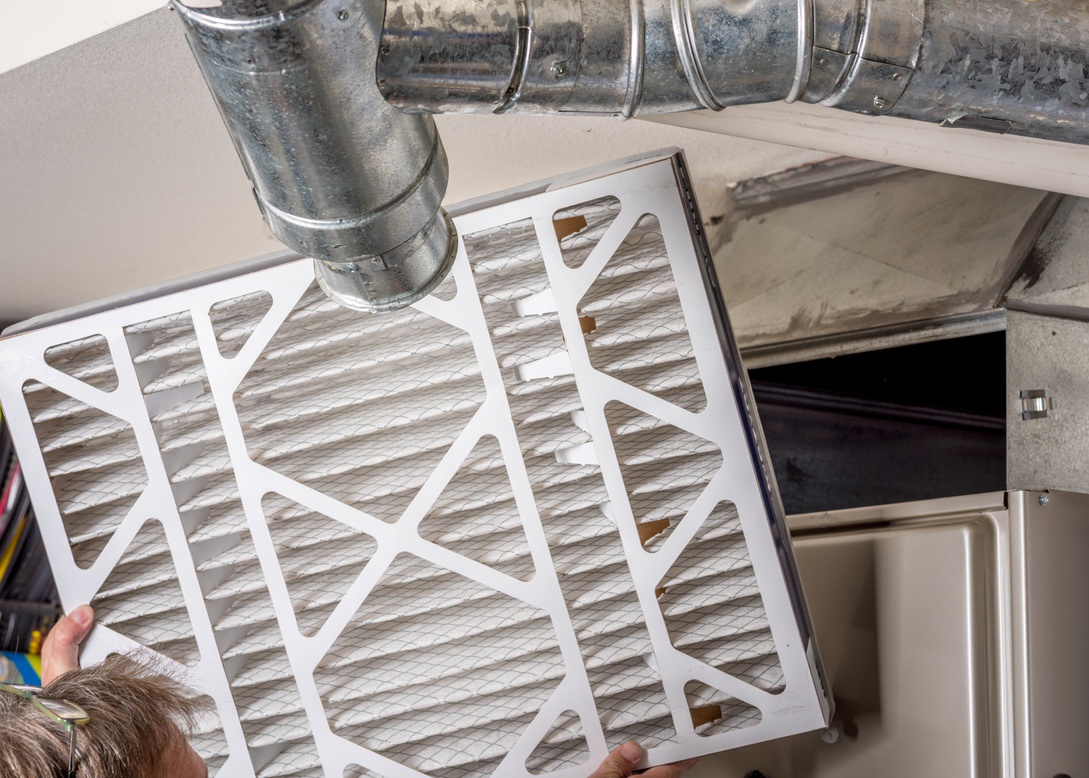
Cleaning or Changing Your Filter
Keeping your furnace filter clean is one of the most important and simplest ways to maintain your system’s efficiency and prolong its life. Here’s how to do it:
- Locate Your Furnace Filter: The filter is usually found inside the furnace or the return air vent.
- Check the Filter Type: Determine whether you have a reusable or disposable filter. Reusable filters can be cleaned, while disposable filters must be replaced.
- Inspect and Clean/Replace the Filter: If you have a reusable filter, use a vacuum to remove dust, and then rinse it with water. Allow it to dry completely before reinstalling. If you have a disposable filter, check its condition. If it’s dirty, replace it with a new one.
- Check the Filter Size: Make sure you’re using the correct size for your furnace when buying and putting in new filters. The required size is usually printed on the side of the filter.
- Install the Filter Correctly: Make sure the filter is installed in the right direction. There should be an arrow on the filter indicating the proper airflow direction.
- Regularly Replace or Clean the Filter: During peak heating season, check the filter every month and replace or clean it as needed.
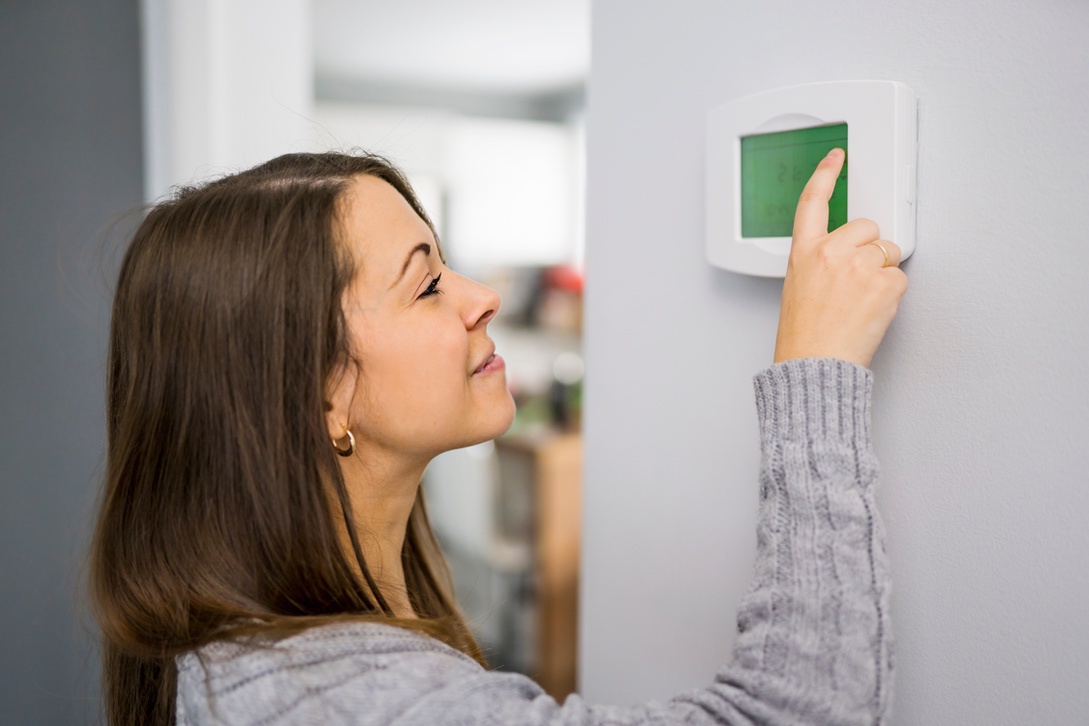
Setting Your Thermostat
Your thermostat plays a vital role in maintaining a comfortable indoor temperature. Here’s how to adjust it:
- Switch to ‘Heat’ Mode: Most thermostats have different modes. Set yours to ‘Heat.’
- Set the Temperature: Choose a comfortable temperature setting. Most people are comfortable at 68°F (20°C) during the day when they’re at home and awake. You can lower it while you’re asleep or away from home.
- Consider a Programmable Thermostat: If you don’t already have one, consider installing a programmable smart thermostat to automatically adjust the temperature based on your schedule.
- Check the Batteries: If your thermostat is battery-operated, make sure the batteries are fresh before the heating season starts.
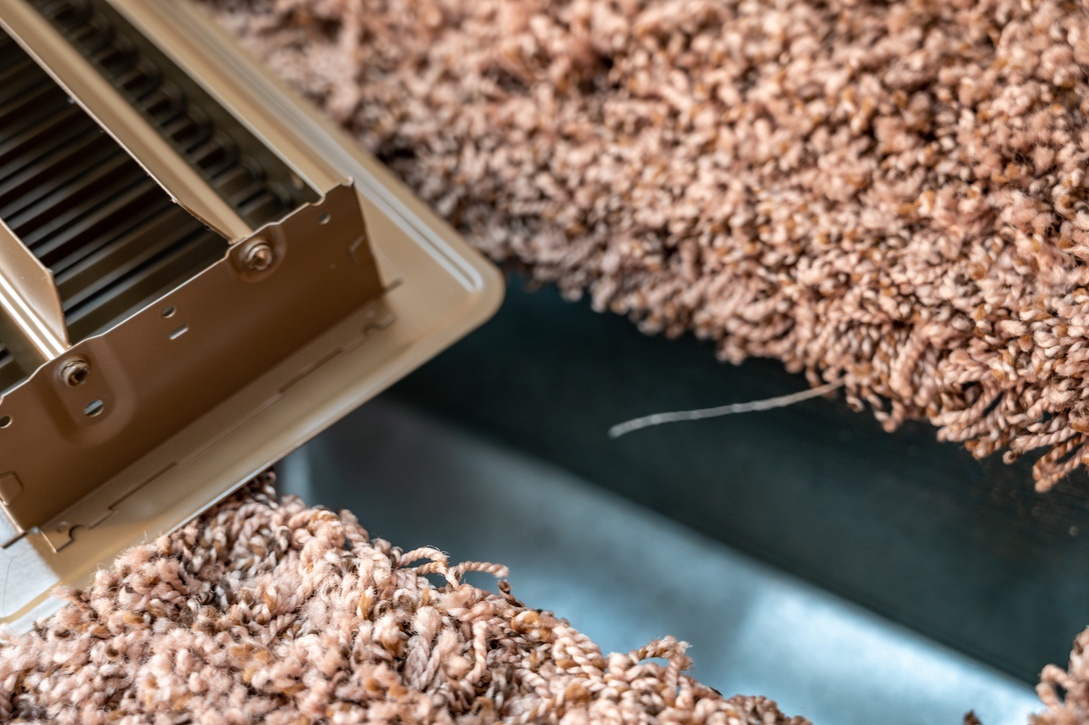
Clearing Your Vents & Registers
Make sure all vents and registers in your home are free of obstructions to ensure proper airflow:
- Inspect All Vents and Registers: Walk through your home and visually inspect each vent and register.
- Remove Obstructions: Ensure that no furniture, curtains, or rugs are blocking the vents.
- Dust and Clean: Use a vacuum cleaner to remove dust from the vents and registers.
Checking Your System Controls
Make sure your furnace’s system controls are working properly:
- Test the System: Turn on your furnace to make sure it starts up and runs properly. Listen for any unusual sounds.
- Check the Thermostat: Ensure that the furnace produces heat and responds to the thermostat’s settings.
- Inspect the Safety Controls: Make sure that the system’s safety controls are functioning properly.
Winter Furnace Prep Tasks for Professionals Only
Not every pre-season furnace maintenance task can be done without help. The following are all important jobs that should only be carried out by our Star City professionals.
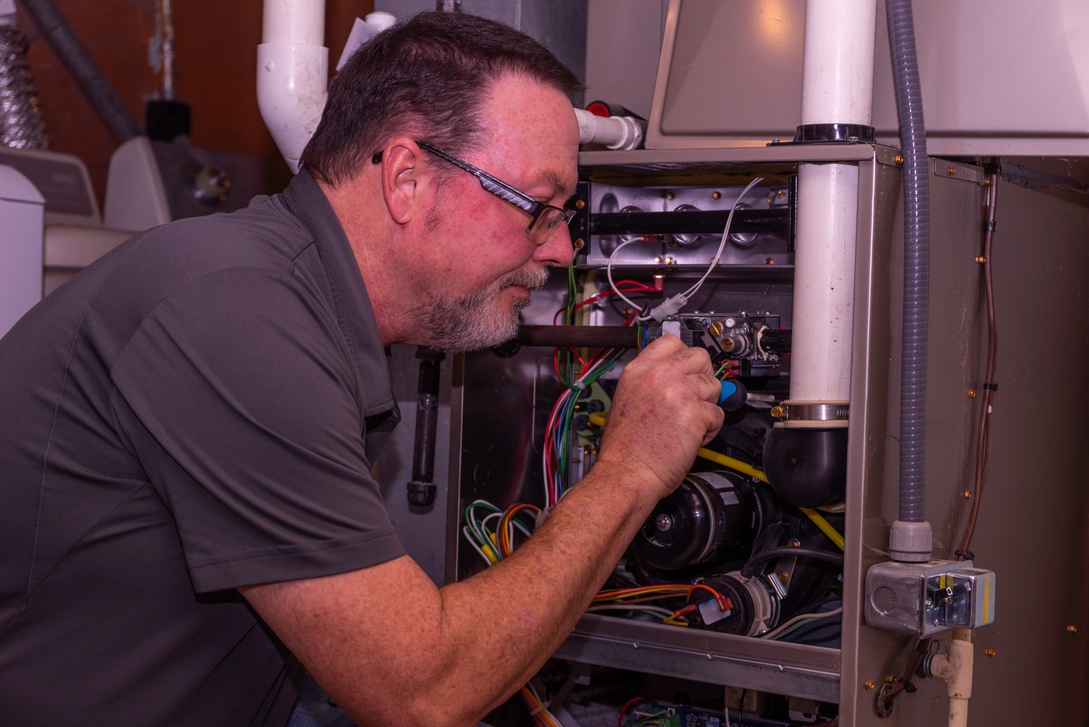
Annual Furnace Tune-Ups
Your furnace is a complex machine with many sensitive components that require professional expertise to clean or adjust. Here’s what our team at Star City will do during a routine furnace tune-up:
- Inspect the Heat Exchanger: Check for any signs of corrosion, cracks, or damage.
- Check the Burners: Ensure they are igniting properly and burning cleanly.
- Examine the Blower Motor: Verify that it’s running efficiently and check its amp draw against the manufacturer’s specifications.
- Test the Ignition System: Make sure it’s working reliably and safely.
- Inspect the Flue Pipe: Look for any blockages, leaks, or signs of corrosion.
- Check the Safety Controls: Ensure all safety mechanisms are in place and functioning properly.
- Inspect the Electrical Connections: Tighten any loose connections and measure the voltage and current on the motor.
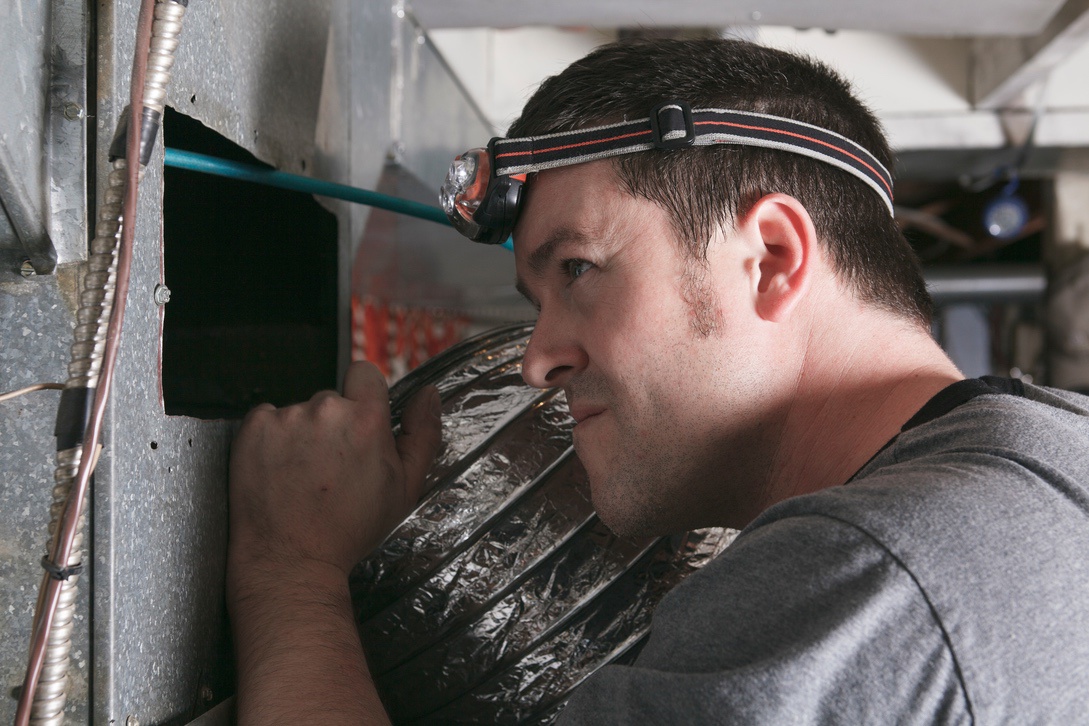
Inspecting & Cleaning Ductwork
Dust and debris can build up in your home’s ductwork over time, which can affect your system’s efficiency and indoor air quality. Here’s what Star City’s technicians will do when you call us for duct cleaning:
- Inspect the Ductwork: Check for any signs of damage, leaks, or blockages.
- Clean the Ducts: Use specialized tools to thoroughly clean the ducts.
- Seal Any Leaks: If any leaks are found, they will be sealed to improve efficiency.
Calibrating the Thermostat
An improperly calibrated thermostat can lead to inefficiency and discomfort. Here’s how our technicians will handle it:
- Test the Thermostat: Check its accuracy and recalibrate it if necessary.
- Ensure Proper Placement: Make sure it’s located away from drafts or heat sources, which can affect its readings.
- Check the Wiring: Ensure all connections are secure.
Lubricating Moving Parts
Parts of your furnace system move constantly when in operation, and they need to be lubricated to prevent wear and tear. Here’s how we’ll help:
- Identify Moving Parts: Locate all moving parts within the furnace system.
- Clean and Lubricate: Clean and apply a suitable lubricant to each moving part to ensure smooth operation.
- Check for Wear and Tear: Inspect the parts for any signs of wear and recommend replacement if necessary.
Let’s Work Together to Prepare Your Furnace for Winter
By following this checklist and contacting us at Star City Heating & Cooling for the tasks that require expert attention, you can ensure that your furnace is ready to keep your home warm and comfortable throughout the winter months in Nebraska.
Remember, regular maintenance not only prolongs the life of your HVAC system but also improves its efficiency and safety. Don’t wait until the cold sets in; prepare your furnace for winter today!
Heating is critical for residents of the Cornhusker State, where winters are frequently cold and long. But choosing the right kind of heating system for your home can be a challenge—unless you know a little bit about your options. And the good news is, we’re here to help with that!
Our team at Star City performs all kinds of heating installations in Nebraska, including both central furnace systems and heat pumps. Below, we run through the pros and cons of each kind so you can make an informed decision about your next piece of home heating equipment.
Key Differences Between Furnaces & Heat Pumps
Furnaces and heat pumps are two distinct types of heating systems that use different processes to keep homes warm. Here’s a breakdown of how each kind works:

Furnaces
A furnace, typically powered by natural gas, propane, or electricity, generates heat by combusting fuel or using electrical resistance. It then distributes the produced heat through ductwork and around your home.
Furnaces work by:
- Drawing in cold air
- Heating it via the heat exchanger
- Distributing the warmed air throughout your home via ductwork
Gas furnaces typically have an Annual Fuel Utilization Efficiency (AFUE) rating between 89-98%, with higher percentages indicating greater efficiency.

Heat Pumps
A heat pump, on the other hand, doesn’t generate heat; it moves it. By using refrigerant, it extracts heat from the outside air (or ground, in case of geothermal heat pumps) and transfers it inside your home during winter. In summer, the process is reversed, thereby providing cooling as well.
Here’s a simplified overview of the refrigerant cycle in a heat pump:
- In heating mode, the outdoor coil acts as an evaporator. The refrigerant absorbs heat from the outside air, even in cold weather, and evaporates into a gas.
- Pressure is then added to the refrigerant gas by the compressor. This process increases the temperature of the refrigerant.
- This high-temperature gas then moves to the indoor coil, acting as a condenser. The refrigerant releases its heat, warming the indoor air. As it loses heat, the refrigerant changes back into a liquid state.
- The refrigerant, now a high-pressure liquid, is expanded and cooled further as it flows through the expansion valve. It then returns to the outdoor coil, and the cycle repeats.
Unlike natural gas, heat pumps almost always use electricity as their primary power source. The efficiency of a heat pump is measured in terms of the Coefficient of Performance (COP) or Heating Seasonal Performance Factor (HSPF). Modern heat pumps can have HSPF ratings from 7.7 to 10.
Advantages & Disadvantages
Both types of heating equipment have their pros and cons. Here’s a quick breakdown:
Furnaces
Pros
- Can produce high amounts of heat, making them useful in colder climates
- Typically have a longer lifespan of about 15-20 years
Cons
- Only provide heating and require a separate system for cooling
- Are less energy efficient than heat pumps (except in particularly cold temperatures)
Heat Pumps
Pros
- Energy efficient in moderate temperatures
- Can provide both heating and cooling
- Can be cheaper to run because they transfer rather than generate heat
Cons
- Efficiency decreases at around 40°F or below
- Require an emergency backup heat source for below freezing temperatures
- Usually have a shorter lifespan of about 10-15 years

What to Consider When Choosing a Heating System in Nebraska
When choosing a central furnace or heat pump for your home, make sure to take the following factors into account:
- Budget: Think about what you’re willing to spend upfront on heating equipment. Central furnaces generally have lower installation costs than heat pumps, so you’ll want to consider what you can afford.
- Installation Company: Choosing the right installers for your new heating equipment helps ensure smooth and efficient performance. Experienced professionals like our team have the skills and knowledge to avoid sizing mistakes or leaks when we install your system, preventing energy from being wasted when you run the unit and reducing wear and tear over time.
- Lifestyle and Needs: Everyone has their own specific comfort preferences and routines, so you’ll want to make sure you’re investing in heating equipment that can satisfy them. Our team is happy to provide personalized recommendations based on your needs.
- Timing: Upgrading your heating system is a significant investment, but it’s usually better than waiting until your current system is on its last legs. If you’re experiencing discomfort, constant breakdowns, or energy efficiency problems with your present model, getting a new heating system is probably the most cost-effective choice.
- Home Size and Layout: Larger homes or those with a complex layout may require a more robust heating system. High-efficiency gas furnaces are often best-suited for these homes due to their ability to consistently produce heat in large amounts. However, if your home is open-concept or smaller, a heat pump could effectively provide both heating and cooling.
- Fuel Availability: In Lincoln, natural gas is readily accessible and more affordable per unit than electricity. This availability can make gas furnaces an economical choice for homeowners. However, if you’re in a rural area of Lincoln where natural gas isn’t as accessible, or if you prefer to leverage renewable electric sources, a heat pump might be a practical choice.
If you do purchase a heat pump, you may also want to consider having a backup heat source. This is because heat pumps only function effectively down to a certain temperature, and require supplementary heating equipment in extreme cold.
Heat pumps can be paired with gas furnaces or electric air handlers to provide additional heat when needed. Air handlers are the most common choice for most Nebraska homeowners, but it depends on what fuel source is currently in the home as well as other factors. If you are considering a heat pump for your home, our team will be happy to recommend appropriate heating equipment as a cold-weather failsafe.
Frequently Asked Questions About Heat Pumps vs. Furnaces in Nebraska
What Are the Upfront Costs & Long-Term Savings of Heat Pumps vs. Furnaces?
Upfront costs for furnaces can range from $2,000 to $5,000, depending on size and efficiency. For heat pumps, the cost can vary from $4,000 to $7,000. While heat pumps tend to be more expensive upfront, they can also lead to more savings in the long run due to their energy efficiency.
Can Heat Pumps or Furnaces Impact My Indoor Air Quality?
Both furnaces and heat pumps can contribute to dry indoor air, which can cause discomfort. Regular maintenance, including changing filters, can help maintain good indoor air quality.
It’s also advisable to add a whole home humidifier to your HVAC system if you want to restore moisture to the air in your home—this can help eliminate feelings of dry skin and lessen the effects of some respiratory problems.
Finally, consider adding a Reme Halo to purify your home’s air. This will destroy bacteria and other organic matter that can contaminate air as it circulates throughout your home.
What Maintenance Requirements Do Furnaces & Heat Pumps Have?
Both systems should ideally be serviced annually. For furnaces, this includes checking and cleaning the burner, heat exchanger, and blower motor. Heat pump maintenance involves checking the refrigerant level, coil cleaning, and ensuring all electrical and mechanical components are in good condition.
Regular maintenance ensures optimal operation, prolongs the lifespan of the equipment, and helps prevent costly repairs or replacements. It is crucial to get a professional to do these checkups, as they have the knowledge and tools to ensure your system is safe and efficient.
What Is the Environmental Impact of a Furnace vs. A Heat Pump?
Furnaces, particularly those running on fossil fuels, generate more greenhouse gas emissions compared to heat pumps. Electric heat pumps are more environmentally friendly, since they primarily use electricity to move heat rather than burning fuel to create it, leading to lower emissions.
Learn More & Make an Informed Choice About Your Home Heating System
The more you learn about both kinds of heating equipment, the easier it will be to choose one and be satisfied with the outcome. Here are a few ways to learn more:
- Find Rebates and Incentives: Local utility companies, state programs, and federal tax credits can offer incentives for energy-efficient heating systems. The Database of State Incentives for Renewables & Efficiency (DSIRE) is a comprehensive source of information on this topic. However, our consultants will go over these with you during the quote.
- Consult a Professional: Having our consultants visit your home is often the best way to estimate how much energy it uses, where energy is being lost, and which problem areas and fixes you should prioritize to make your home more energy-efficient and comfortable. We consider the condition of your ductwork, your windows, the placement of your units, and more.
- Contact Star City: Our team of home comfort experts at Star City Heating & Cooling not only provides installation services but also offers professional advice based on extensive experience and understanding of local climate and building norms. Give us a call to get a personalized recommendation on the best kind of heating equipment for your home.
Furnaces can make staying comfortable throughout Nebraska’s changing seasons much easier—since they provide efficient heating capabilities for your home. But getting an efficient furnace means buying one that’s the right size for your home and taking care of it with proper maintenance—so where should you begin?
We’ve installed, repaired, and provided furnace repairs throughout Lincoln, NE—so we know all about what to consider when buying one. Keep reading to find out how furnaces work, how to buy one that will fit your home, what it will cost, and more.
See Also:
How Does a Furnace Work?
Furnaces typically use natural gas, oil, or electricity to heat air, which is then circulated throughout your home via ductwork and dispersed into your room through supply ducts.
How the Heating Cycle Works:
- The thermostat detects a drop in temperature and sends a signal to the furnace.
- The furnace burner ignites the fuel (in gas or oil furnaces) and transfers thermal energy to the heat exchanger. In electric furnaces, a heating element in the heat exchanger warms the air directly.
- The blower motor engages, pushing air across the heat exchanger.
- The warm air travels through the ductwork and is distributed throughout your home.
- The furnace shuts off once the desired temperature is reached.
What to Consider When Buying a Furnace
Replacing your old furnace with a new high-efficiency model can lower the costs of maintaining a comfortable temperature in your home, especially during cold Nebraska winters. But getting the right furnace for your home means considering a few key factors:
Sizing Your Furnace
Any new furnace you purchase should be energy efficient for your space. A furnace’s AFUE, or Annual Fuel Utilization Efficiency, is a measure used to rate its efficiency by dividing the amount of heat output of a furnace by the total energy consumed by the furnace in a year (represented as a percentage).
For example, an AFUE of 90% means that 90% of the fuel’s energy is being converted to heat for your home, while the other 10% escapes as exhaust or remains unburned. The higher the AFUE percentage, the more efficient the furnace is at converting fuel into heat.
In addition to AFUE, accurately sizing a furnace is a complex process that must also account for:
- The square footage of the area in your home that needs heating
- Your home’s R-value (which refers to its insulation, or how easily heat can enter and leave)
- The height of your home’s ceilings
- The number of windows and doors in your home
… and more.
Since sizing a furnace is such a delicate process, it should always be done by one of our professionals. When you ask Star City to install your furnace, your technician will perform a load calculation called the Manual-J to determine your home’s precise heating needs and recommend a furnace that fits.
Frequently Asked Questions about Buying Furnaces in Nebraska
Will a Furnace Provide Enough Heat During Nebraska’s Winters?
Absolutely. Modern high-efficiency furnaces can provide plenty of heat—even during the coldest Nebraska winters. Our furnaces are designed with advanced features that ensure efficient operation and robust heat production.
What Kinds of Furnaces Are There?
There are three major types of furnaces:
- Oil Furnaces: These furnaces are more commonly found in rural regions that do not have access to natural gas lines. They heat homes faster than other types and can sometimes be more cost-effective to run than electric furnaces (depending on utility rates) but more expensive than natural gas models.
- Gas Furnaces: These furnaces offer excellent energy efficiency and relatively low running costs. They usually heat the home faster than electric furnaces but slightly slower than oil models. They’re ideal for homes in towns and cities that already have natural gas lines.
- Electric Furnaces: These furnaces use electric heating elements to heat the air directly. They are often among the most cost-effective models to install up front and can be extremely energy efficient—however, their running costs may still be higher than gas or oil furnaces due to Nebraska’s electricity costs.
How Much Do Furnaces Cost in 2023?
The cost of your new furnace will depend on:
- Its efficiency (AFUE)
- How accessible the installation area is (hard-to-reach places can drive up our time and labor costs)
- Whether your ductwork needs to be upgraded to accommodate your new furnace
- The type of furnace (oil, gas, or electric)
How Long Does Installing a Furnace Take?
Installing a furnace can generally be done in less than one business day, but every home is different. We’ll give you a timeline for your installation when you buy your new furnace from us, based on factors like:
- The type and size of furnace we’re installing
- The condition of your ductwork
- The labor required to access the installation location
We always do our best to provide accurate information on how long installations will take. If we encounter any factors that will increase the length of time required to install your furnace, we’ll tell you ASAP so you can plan ahead.
How Long Will My Furnace Last?
On average, furnaces should last from 15 to 20 years—although they can last up to or over 25 years with proper care. Maintenance, usage habits, and installation quality are all major factors in determining a given furnace’s lifespan.
Always make sure your furnace is serviced by licensed HVAC professionals and follow the recommendations in your owner’s manual to help it last as long as possible.
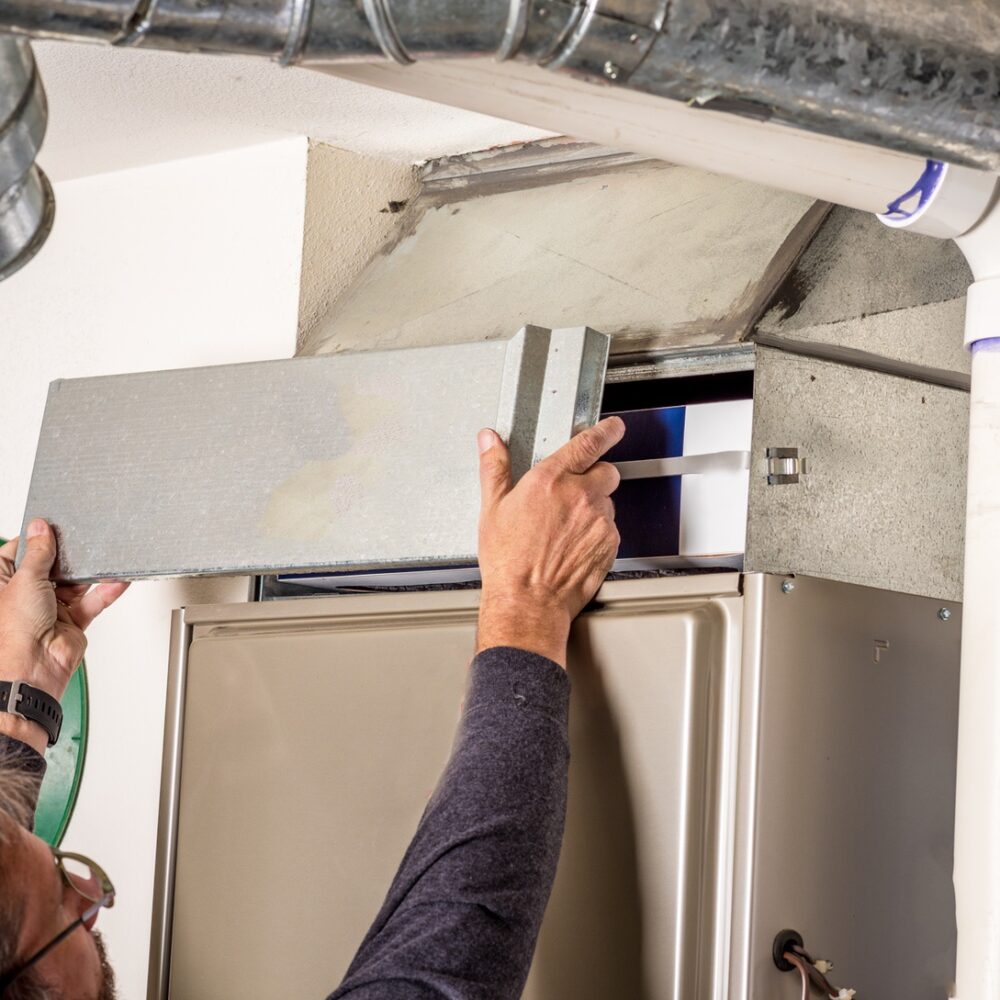
What Maintenance Do Furnaces Need?
There are a few things you can do by yourself to keep your furnace healthy. These include:
- Changing your air filters regularly
- Keeping the area around your furnace clean and unobstructed
- Checking your thermostat to make sure it has power and is set to the right temperature
You should also arrange for annual professional heating tune-ups—usually during the fall, before cold weather arrives. Star City’s heating tune-ups include:
- Checking all gas & electrical connections
- Testing your blower’s performance
- Lubricating all moving parts
- Inspecting and cleaning your furnace’s burner
- Calibrating your thermostat controls
- A comprehensive multi-point safety inspection
Do not attempt to tamper with your furnace’s fuel or electrical components. This can be unsafe and can also void your heating equipment’s warranty. Always call our professionals for help with these tasks.
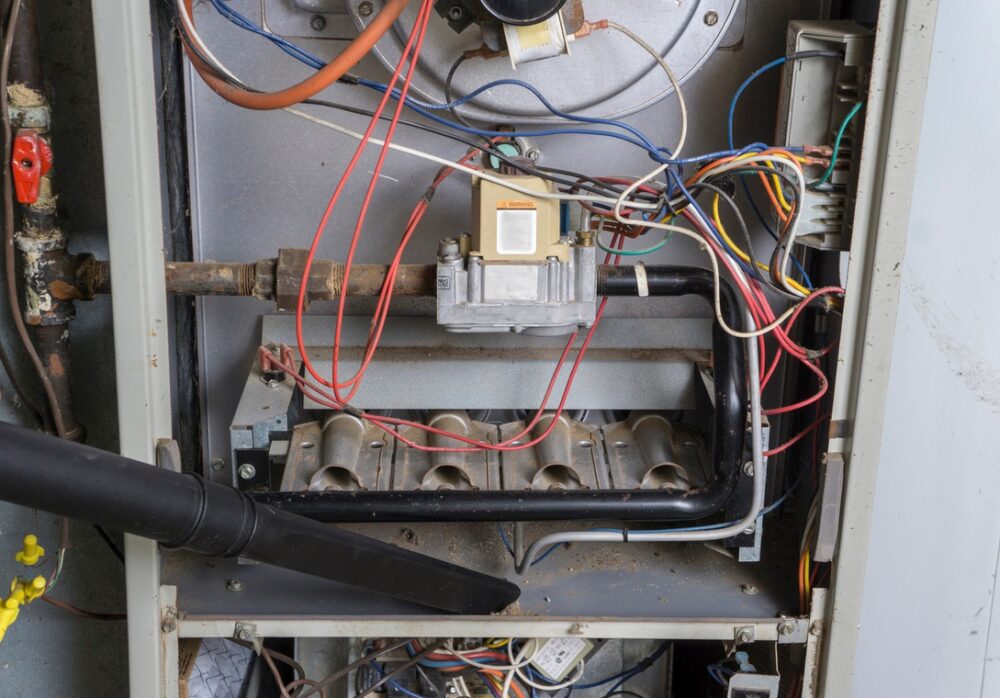
What Are the Signs My Furnace Needs Service?
Signs your furnace might need professional service include:
- Inconsistent or insufficient heating
- Unusual noises or smells coming from the unit
- Rising energy bills (despite no change in usage)
- Frequent cycling on and off
- Yellow or flickering burner flame (this can indicate incomplete combustion in gas furnaces and potentially cause a carbon monoxide leak)
- Inconsistent thermostat readings
If you’re experiencing any of these issues, give us a call right away so that we can diagnose the issue before it becomes worse (and potentially more expensive to fix).
Buying the Right Furnace for Your Nebraska Home
Understanding how furnaces work, what factors affect their efficiency, and the work involved in correctly sizing one for your home will help you purchase a unit you can count on for comfort during Nebraska’s chilly winters. Get recommendations on furnaces that will work for your specific heating needs by contacting Star City Heating & Cooling. We’ll help you choose the best model for your home, provide you with a quote, and answer any additional questions you have.
Heat pumps can make staying comfortable throughout Nebraska’s changing seasons much easier and more cost-effective—since they provide heating and cooling capabilities in a single unit. But getting an efficient heat pump means buying one that’s the right size for your home and taking care of it with proper maintenance—so where should you begin?
We’ve installed, repaired, and serviced heat pumps throughout Lincoln, NE—so we know all about what to consider when buying one. Keep reading to find out how heat pumps work, how to buy one that will fit your home, what it will cost, and more.
See Also:
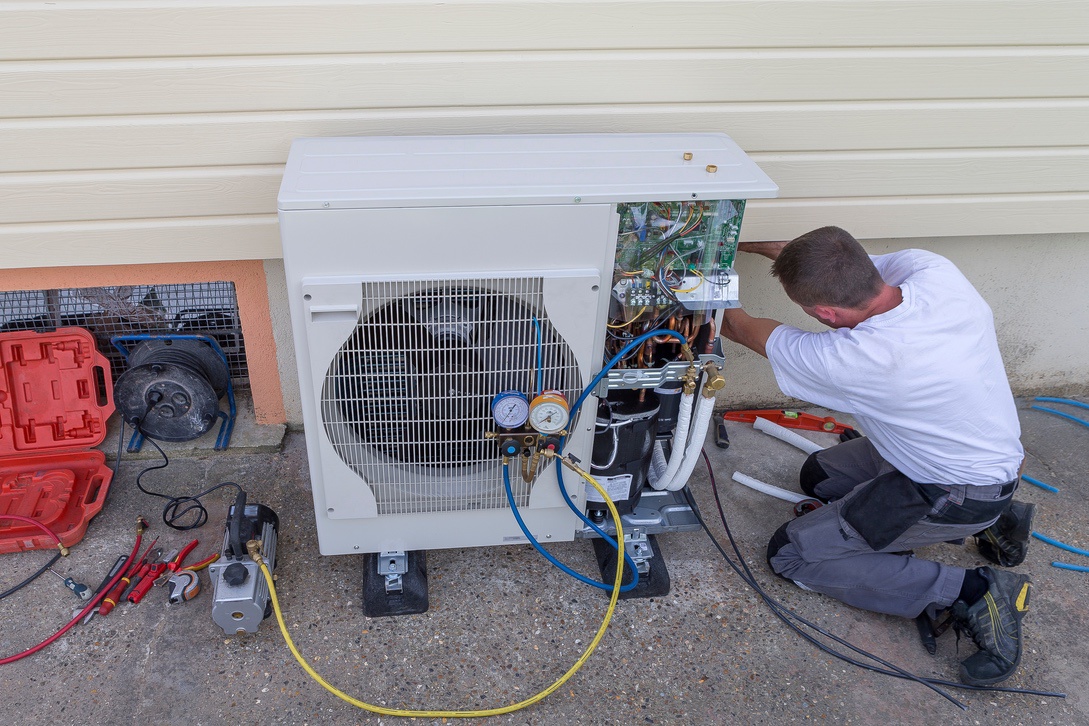
How Does a Heat Pump Work?
Like air conditioners, heat pumps use refrigerant to absorb heat from one area and move it to another location where it can be released.
How the Refrigerant Cycle Works:
- Refrigerant starts out as a gas with low pressure
- When refrigerant enters the compressor, it gets squeezed. As pressure is added, the refrigerant absorbs heat (cooling the air around it)
- Refrigerant moves to the condenser, which releases its heat and converts it to a high-pressure liquid
- The liquid refrigerant moves into the expansion valve, which lowers the pressure and releases even more heat
- The refrigerant is now a cool liquid—when it moves to the evaporator, it absorbs heat from the air again to become a low-pressure gas once more
- The refrigerant re-enters the compressor to start the cycle again
While air conditioners can only absorb heat from the air inside your home and transfer it outside, heat pumps are also designed to absorb heat from outside and move it indoors. Since moving heat uses much less energy than producing it, heat pumps can be extremely efficient, transferring three to four times as much energy in the form of heat than they use in electricity.
What to Consider When Buying a Heat Pump
Investing in a heat pump can be an excellent way to cut down on expenses while keeping your home comfortable, since they’re energy efficient and there’s only one unit to maintain instead of two. But getting the right heat pump for your home means considering a few key factors:
Sizing Your Heat Pump
Just like furnaces and air conditioners, heat pumps have to be sized appropriately for the space you need to heat and cool. Size refers to your heat pump’s heating and cooling capacity, which is measured in BTU (British Thermal Units).
However, BTU is just one indicator of how easily a heat pump can heat or cool your home. Accurately sizing a heat pump is a complex process that must also account for:
- The square footage of the area in your home that needs heating and cooling
- Your home’s R-value (which refers to its insulation, or how easily heat can enter and leave)
- The height of your home’s ceilings
- The number of windows and doors in your home
- … and more
Since sizing a heat pump is such a delicate process, it should always be done by one of our professionals. When you ask Star City to install your heat pump, your technician will perform a load calculation called the Manual-J to determine your home’s precise heating and cooling needs and recommend a heat pump that fits.
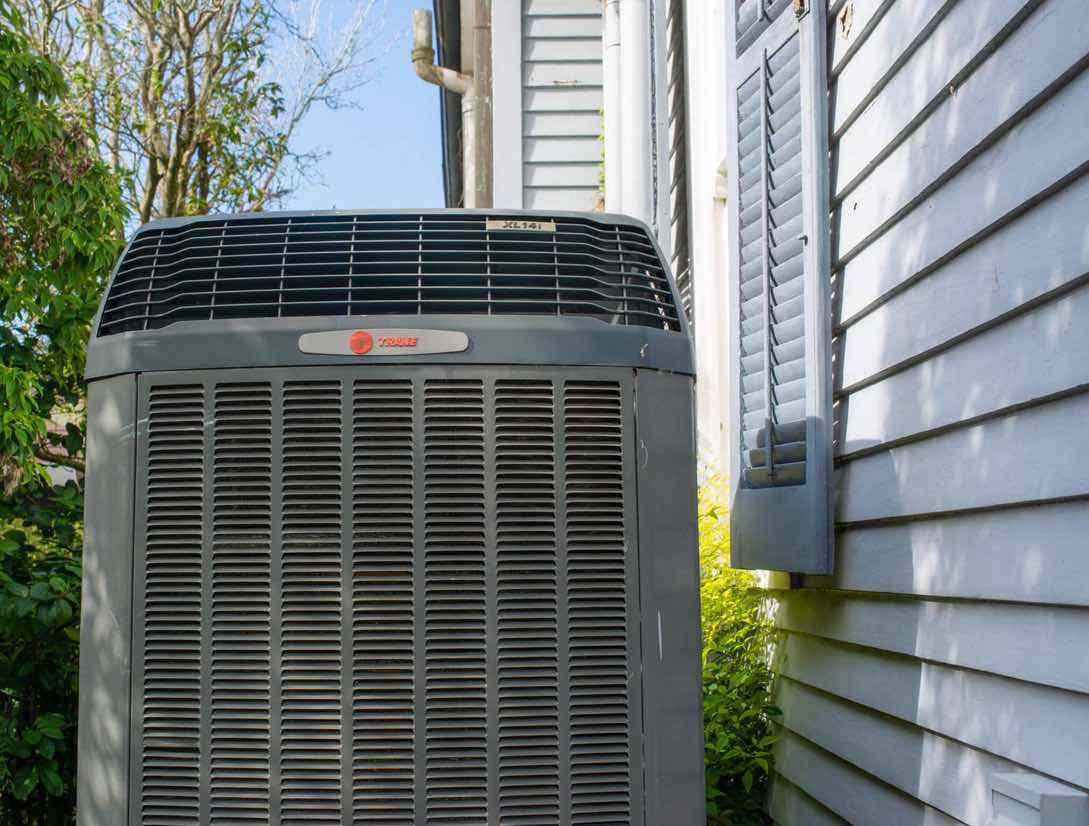
Frequently Asked Questions about Buying Heat Pumps in Nebraska
Will a Heat Pump Provide Enough Heat During Nebraska’s Winters?
While older heat pumps did not always function effectively in extremely cold weather, modern high-efficiency heat pumps can provide plenty of heat—even during the coldest Nebraska winters. Our heat pumps are designed with improved compressors and coils, and use stronger motors to move air through your ducts so that warm air can circulate better in the cold.
What Kinds of Heat Pumps Are There?
- Air-source heat pumps: these heat pumps extract heat from the air outside and use it to heat indoor spaces. Most of the heat pumps we sell are high-efficiency air-source heat pumps that provide satisfactory heating and cooling in every season.
- Ground-source (or geothermal) heat pumps: these heat pumps draw heat from the ground and transfer it indoors. They are typically more expensive than air-source heat pumps.
- Water-source heat pumps: these heat pumps move heat from bodies of water to heat indoor spaces. They are extremely energy efficient but only an option for homeowners who live near lakes, rivers, or the coast.
- Hybrid heat pumps: these heat pumps combine the efficiency of an air-source heat pump with the power of a gas furnace—using gas to supplement the heat pump if the weather ever gets too cold to transfer heat indoors efficiently.
- Ductless mini-split heat pumps: these heat pumps provide individual heating and cooling to specific areas or rooms, without the need for ductwork.
How Much Do Heat Pumps Cost in 2023?
The cost of your new heat pump will depend on:
- It’s size (in BTU)
- How accessible the installation area is (hard-to-reach places can drive up our time and labor costs)
- Whether your ductwork needs to be upgraded to accommodate your new heat pump
- Extra features such as variable-state compressors and backup heating sources (like natural gas for hybrid heat pumps)
How Long Does Installing a Heat Pump Take?
Installing a heat pump can generally be done in less than one business day, but every home is different. We’ll give you a timeline for your installation when you buy your new heat pump from us, based on factors like:
- The type and size of heat pump we’re installing
- The condition of your ductwork
- The labor required to access the installation location
We always do our best to provide accurate information on how long installations will take. If we encounter any factors that will increase the length of time required to install your heat pump, we’ll tell you ASAP so you can plan ahead.
How Long Will My Heat Pump Last?
On average, heat pumps should last from 10 to 15 years—although they can last up to or over 20 years with proper care. Always make sure your heat pump is serviced by licensed HVAC professionals and follow the recommendations in your owner’s manual to help it last as long as possible.
What Maintenance Do Heat Pumps Need?
There are a few things you can do by yourself to keep your heat pump healthy. These include:
- Cleaning or replacing your air filters on a monthly basis (depending on whether they’re disposable or reusable)
- Keeping your outdoor unit clean by clearing away debris and vegetation
- Checking and cleaning the condensate drain
- Checking your thermostat to make sure it has power and is set to the right temperature
You should also arrange for annual professional heating tune-ups—usually during the fall, before cold weather arrives. Our heating tune-ups include:
- Checking all gas & electrical connections
- Testing your blower’s performance
- Lubricating all moving parts
- Checking and cleaning your heat pump’s coils
- Running temperature performance diagnostics
- Calibrating your thermostat controls
- Checking your fan switch & belt
- A comprehensive multi-point safety inspection
What Are the Signs My Heat Pump Needs Service?
Signs your air conditioner might need professional service include:
- Uneven heating or cooling
- Temperature problems
- Unusual noises or smells coming from the unit
- Poor airflow
- Energy bills that steadily increase (despite no change in usage)
- Turning on and off rapidly (cycling)
- Ice buildup on the outdoor unit
- Inconsistent thermostat readings
If you’re experiencing any of these issues, give us a call right away so that we can diagnose the issue before it becomes worse (and potentially more expensive to fix).
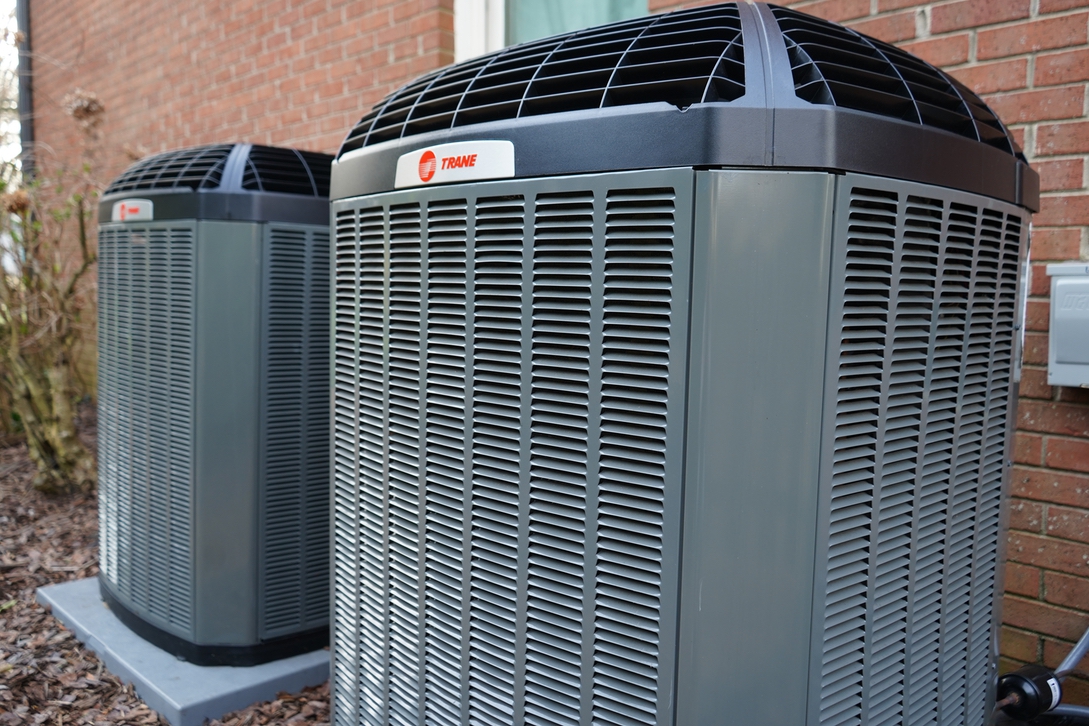
Making the Most of Your Heat Pump in Nebraska
Understanding how heat pumps work, why they’re more efficient than older heating and cooling equipment, and the factors that go into correctly sizing one for your home will help you purchase a unit you can count on for year-round comfort during Nebraska’s warm summers and chilly winters. Get recommendations on heat pumps that will work for your specific comfort needs by contacting Star City Heating & Cooling. We’ll help you choose the best model for your home, provide you with a quote, and answer any additional questions you have.
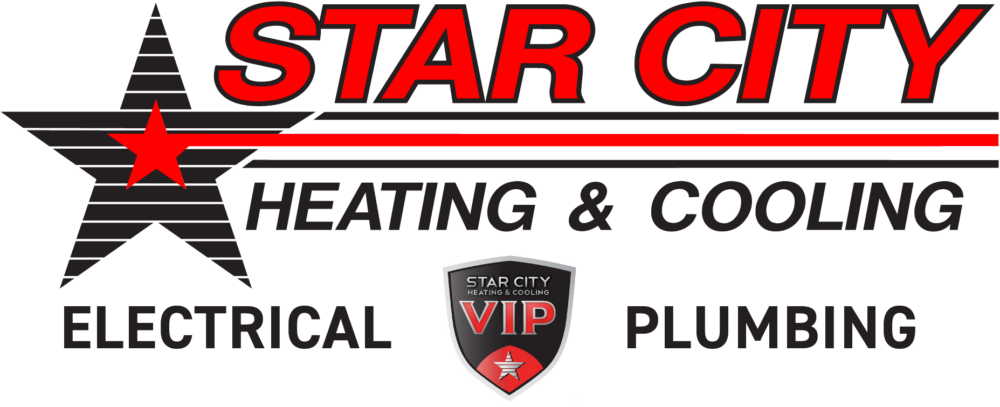
 Eco-Friendly Solutions: In today’s world, energy efficiency is more important than ever. Trane leads the way with HVAC systems that significantly reduce energy consumption without compromising on performance. By using Trane products, you’re not only lowering your energy bills but also reducing your carbon footprint, contributing to a more sustainable future. Cost Savings: The high efficiency of Trane systems translates into tangible savings on your energy bills. Trane’s innovative designs and technologies ensure that your HVAC system operates at optimal efficiency, making it a smart financial investment for any homeowner or business.
Eco-Friendly Solutions: In today’s world, energy efficiency is more important than ever. Trane leads the way with HVAC systems that significantly reduce energy consumption without compromising on performance. By using Trane products, you’re not only lowering your energy bills but also reducing your carbon footprint, contributing to a more sustainable future. Cost Savings: The high efficiency of Trane systems translates into tangible savings on your energy bills. Trane’s innovative designs and technologies ensure that your HVAC system operates at optimal efficiency, making it a smart financial investment for any homeowner or business.